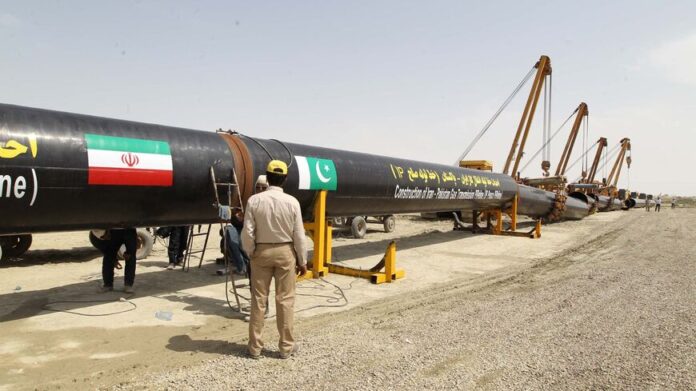The Pakistani government has hired three prominent law firms—White & Case, Three Crowns, and Willkie Farr & Gallagher—along with a leading Australia-based energy sector lawyer, to represent the country in an arbitration case initiated by Iran in the Court of Arbitration in Paris.
The case stems from Pakistan’s delay in constructing its portion of the Iran-Pakistan gas pipeline and its failure to import 750 million cubic feet per day (mmcfd) of gas as stipulated.
The News reported, citing top official sources in the Law Division and the Attorney General’s Office, that the legal team has been briefed on the details of the Iran-Pakistan (IP) pipeline project and the challenges that hindered Pakistan’s compliance.
Pakistan officially submitted its legal team information to the Paris-based court on October 18, 2024. The country will now select an arbitrator. Iran will appoint its own, and both parties will choose a third arbitrator to complete the panel. Once established, the arbitration process is expected to conclude within approximately one year.
In August 2024, Iran issued a final notice to Pakistan, indicating that it would proceed with arbitration due to Pakistan’s failure to construct the pipeline within an extended 180-day deadline, which expired in September 2024.
The project, initially signed in a Gas Sales Purchase Agreement (GSPA) in 2009, has faced a 10-year delay largely due to the threat of U.S. sanctions on countries engaging in energy projects with Iran.
The French-based Arbitration Court, which operates independently of U.S. sanctions, will serve as the dispute resolution forum.
Under a revised contract signed in 2019, Pakistan agreed to complete its section of the pipeline by 2024, following which it would start gas intake from Iran. However, Pakistan was unable to meet the deadline, prompting Iran to escalate the matter legally.
If Iran had not filed by September 2024, its right to arbitration under French law would have expired. This legal step follows Iran’s previous notices, including one in late 2022, warning of potential penalties if Pakistan did not fulfill its obligations.
Government officials cited U.S. sanctions as the primary reason for the delay, stating that despite efforts to secure a waiver, the Biden Administration remains opposed to the project. The U.S. Assistant Secretary of State, Donald Lu, reiterated in March 2024 that Pakistan could face severe repercussions if it proceeded with the IP pipeline project.
As per the original GSPA, Pakistan would be liable for a $1 million daily penalty for delays beyond January 1, 2015. The agreement envisioned a segmented project, with each country responsible for its portion of the pipeline, originally intended for completion by December 2014. Attempts to partially implement the project, including an 81-kilometer pipeline from Gwadar to the Iran border, were unsuccessful.




